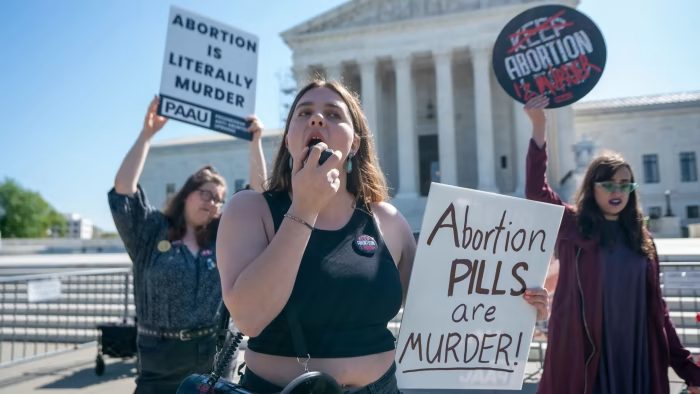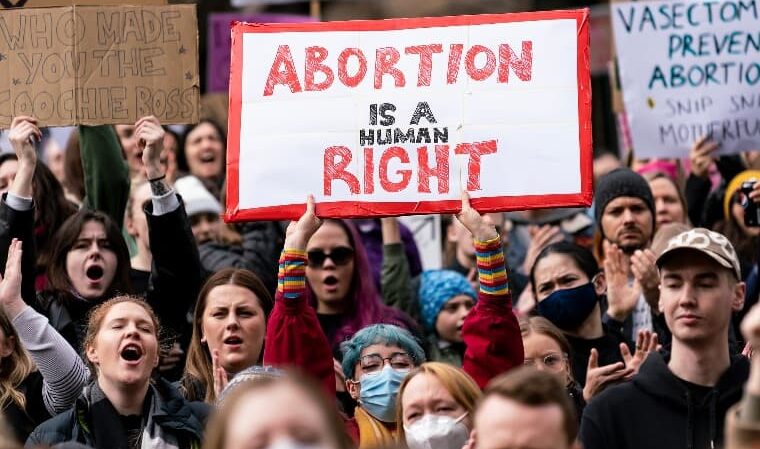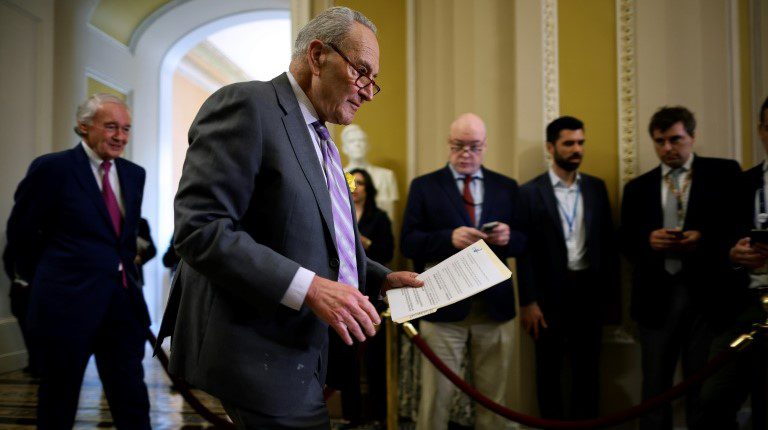In its first significant abortion-related decision since Roe v. Wade was reversed, the Supreme Court on Thursday rejected a challenge aiming at restricting the availability of a commonly used abortion pill, maintaining access to the medication.
The justices unanimously decided a case on procedural grounds. They concluded that a coalition of physicians and medical associations opposed to abortion pill rights who sued the Food and Drug Administration lacked the legal authority to do so.
The Supreme Court did not examine if the FDA acted lawfully when it took several actions in 2016 and 2021 that loosened the regulations for the use of the abortion medicine mifepristone in its ruling that they lacked legal standing.
“The wish of a plaintiff to reduce the availability of medicine to others does not create standing to suit under Article III of the Constitution. The plaintiffs’ other standing theories are insufficient as well, said Justice Brett Kavanaugh for the court. “The plaintiffs lack standing, therefore, to challenge FDA’s actions.”
The ruling maintains the FDA’s recent actions that facilitated the drug’s accessibility but does not exclude further challenges aimed at mifepristone. These measures included removing the need for an in-person dispensing appointment so that the pill could be sent, increasing the number of healthcare professionals who can prescribe mifepristone, and permitting its use later in pregnancy.
A representative for Danco Laboratories, the firm that makes mifepristone, Abigail Long, expressed her satisfaction with the outcome.
“By rejecting the Fifth Circuit’s radical, unmatched, and unsupportable interpretation of who has standing to sue, the justices reaffirmed longstanding basic principles of administrative law,” Long remarked in a statement. “In doing so, they maintained the stability of the FDA drug approval process, which is based on the agency’s experience and on which patients, healthcare providers, and the US pharmaceutical industry rely.”
The Supreme Court’s Abortion Pill Matter

The argument, brought by a group of anti-abortion rights doctors and medical associations, was the Supreme Court’s first concerning abortion since its landmark decision reversing Roe two years ago.
If the challengers had won, the verdict would have limited access to mifepristone nationwide, including places where abortion is allowed.
To terminate an early pregnancy, mifepristone is used in conjunction with misoprostol. Since its FDA approval in 2000, more than 5 million individuals have taken mifepristone, and significant adverse events are “exceedingly rare,” according to the agency. According to a study conducted by the Guttmacher Institute, a pro-abortion rights research organization, medication abortions would account for more than half of all abortions in the United States’ healthcare system by 2023.
However, anti-abortion rights doctors claimed in a November 2022 lawsuit that the FDA lacked the power to authorize mifepristone for sale in the United States and failed to thoroughly examine the drug’s safety and efficacy. The lawsuit targeted the FDA’s approval of mifepristone in 2000, as well as efforts taken by the agency in 2016 and 2021 to make it more accessible.
Mifepristone could now be administered up to 10 weeks into a pregnancy, up from seven weeks; the number of personal visits required was decreased from 3 to 1; more healthcare practitioners could prescribe the drug; and it could be mailed.
U.S. District Judge Matthew Kacsmaryk ruled that the FDA’s 2000 approval of the medicine and its subsequent actions were likely unconstitutional. If the verdict had remained unchanged, mifepristone would have been removed from the market. However, the Supreme Court maintained access to medicine during judicial procedures. After Kacsmaryk’s ruling, a federal appeals court upheld the agency’s approval for mifepristone sales. However, the court said that the agency’s 2016 and 2021 revisions likely violated the law.
That ruling of the United States Court of Appeals for the Fifth Circuit was preempted by the Supreme Court’s earlier rule protecting the widespread availability of abortion drugs. However, the justices’ decision has already lifted the hold.
While the case concerns access to a critical substance used in medicated abortions, pharmaceutical companies and former FDA officials warned that a decision against the agency would have far-reaching consequences. Drug firms said that an adverse finding would weaken the FDA’s clearance process for new pharmaceuticals and pave the way for a torrent of lawsuits challenging decisions made about products that have been on the market for many years.
Since the Supreme Court revoked the constitutional right to abortion, 14 states have enacted near-total bans with few exceptions, while another seven prohibit the operation at or before 18 weeks gestation. According to the Guttmacher Institute, fifteen states restrict access to medication abortion by requiring that it be performed by a physician.
Since Roe was overruled, the Biden administration has taken several steps to increase access to pharmaceutical abortion. In early 2023, the FDA passed a rule allowing more retail pharmacies to distribute abortion pills after a certification process. CVS and Walgreens, the nation’s two largest pharmacy chains, received certification to offer the drug, allowing them to begin selling the medications.
However, anti-abortion rights organizations and lawmakers have launched opposing measures to limit access to mifepristone. In May, Louisiana Gov. Jeff Landry, a Republican, approved legislation reclassifying mifepristone and misoprostol as restricted substances, alongside opioids, depressants, and other addictive chemicals.
Read More:
Hunter Biden Found Guilty In U.S. Gun Case
Source
CBS News

Mike Neon is a seasoned journalist specializing in United States news, known for his comprehensive coverage of national affairs and current events. With a career spanning 5 years in journalism, Mike has established himself as a reliable source of accurate and insightful reporting. His articles delve deep into political developments, social issues, and cultural trends shaping the United States today. Mike Neon’s dedication to providing balanced perspectives and in-depth analysis ensures that readers stay informed about the latest developments that impact the nation.







